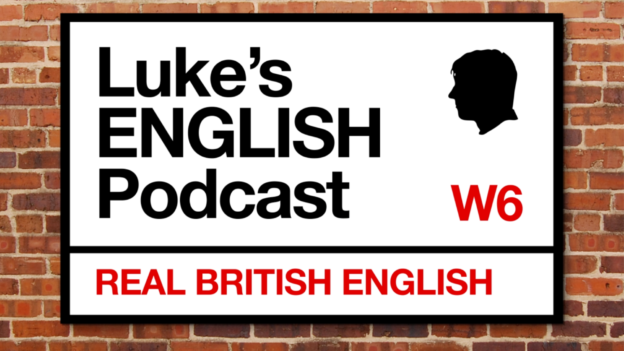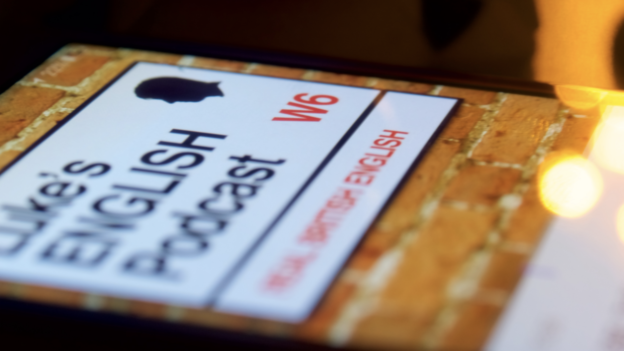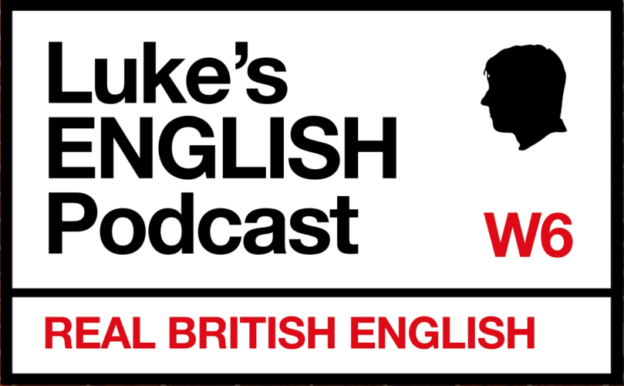A rambling episode with some news about a problem I have with the WISBOLEP competition (ooh!), some tips on making polite requests, an inspiring email from a LEPster and a song on guitar at the end.
[DOWNLOAD]
Episode Transcript (95% complete)
Hello everyone,
How are you doing?
This is a weird period of history in which we are living? I hope you’re getting on ok. Here in France the government has just put some new lockdown restrictions in place and we’re all trying to work out what they really mean. I don’t want to go on about covid on this podcast too much, except to say “hang in there everyone” and keep calm and carry on. Check out my episode from earlier this year which is all about language for talking about lockdown and dealing with lockdown, including the word lockdown, if you’re wondering what that is.
Here’s an episode in which I’m on my own, doing a bit of housekeeping – general podcast admin. I’m mainly going to talk about the WISBOLEP competition (as you can see from the title of the episode), but also I’m going to ramble about a few other things too including teaching you a bit of English – just some simple advice about making polite requests, also an inspiring message from a listener and maybe a song on the guitar at the end, we will see.
I’m publishing this episode hot on the heels of the last episode, which was my conversation with Christian from Canguro English (LEP686). Have you heard that? I only published it a few days ago and conventional podcasting wisdom says that you shouldn’t publish another episode so quickly after the last one, because the last one will sort of get ignored, lost, forgotten or sidelined as people won’t notice it and it won’t get as many listens as it should.
I think it’s a good episode, so if you haven’t heard it – be sure to listen to episode 686 with Christian. There’s also a video version of it on YouTube. It’s had a great response with people saying generally positive things, which is nice. Some people are requesting more video content. My position on this is that most of my content will always be audio, because that’s what I do – I make audio content, but every now and then I’ll do video versions of episodes and stick them on YouTube as well. OK. So subscribe to LEP on YouTube to make sure you get notified when I publish a video episode. I’ll probably tell you on the podcast too.
Also the episode before last has had some really interesting comments on the website. That was the episode about bilingual children in which we heard Alex in Moscow and his daughter Alice. Very interesting to read the comments from LEPsters or LEPlanders who are also bringing up their kids to speak English. Go to the episode archive and find 685 and read the comments. It’s all interesting stuff. I will do more of those bilingual kids episodes at some point. It’s a bit hard to mentally keep track of everything. There are a lot of ins, a lot of outs, a lot of what-have-yous – a lot strands in this old dude’s head, man.
WISBOLEP Problem
The deadline for sending in your entries was 15 October, so that’s long gone. One person is now freaking out.
The results aren’t ready yet or anything. You still have to vote for your favourites and all that – “how can we vote?” Steady on, the voting’s not ready yet either. All in good time.
All the recordings are sitting there in my inbox and I haven’t had a proper chance to work on the next stage of the competition yet. Things take time around here, you know how it is.
First of all I should say that it was great to get all the entries. I’ve managed to listen to almost all of them. I should say that it’s amazing to hear the voices of some of my listeners (some of them – obviously only a tiny portion of you sent in recordings because the vast majority of you are ninjas as we know, and that’s fine). It’s inspiring to hear little snippets of people’s stories of learning English, with the help of this podcast in many cases. That’s also quite flattering – that’s not the point of it all of course – just to flatter me or something. The point was to encourage you to step out of your comfort zone a little bit and record something and send it in, to celebrate my audience a bit and also to just find a new guest with an interesting story to tell in an episode of the podcast. I want to say well done for everyone who plucked up the courage to record a sincere entry into the competition. Some of them are particularly inventive and… well, you will see.
It’s going to be very difficult to choose a winner, because there are quite a lot of really interesting people and I’m sure you are going to want to hear more from many of them.
But the thing is, I have a bit of a problem. We have a bit of a problem with this competition. It’s a logistical issue. Logistical refers to the organisation of something complicated.
It’s not a major problem. It’s not like a Tom Cruise jump out of a plane to save-the-world Mission Impossible to problem or anything – no explosions. It’s quite a good problem really, but still, I’ve been scratching my head and wondering what to do about it.
What’s the problem Luke?
The problem is… I’ve had 100 entries – each one 2 minutes in length – that’s about 200 minutes in total, and that’s about 3 and a half hours if I play all the entries back to back without any pause or comment from me between them and without any introduction from me, and I will have to do some kind of introduction at the start, and it will also be necessary for me to say the names of each person again plus maybe one or two other things to help you remember them.
So, 200 minutes or 3.5 hours, plus an introduction in which I explain the voting rules etc, and little comments from me – that’s at least 4 hours of audio.
It’s too much, isn’t it? It’s too much audio for me to expect everyone to listen to. And I need everyone to listen to it all because I want to do some kind of fair voting process for this. Hmmm.
I like doing long episodes, but this goes beyond that, especially since I would like every single two-minute entry to be heard and you’ll need to remember which one or ones are your favourites in order to vote for them on my website.
Imagine a presidential election with 100 candidates, all presenting themselves to you one after the other. You’d never remember who they were, even if they were all extraordinary.
So this is the issue. Too many entries. It’s become a bit of a logistical nightmare.
It’s my fault. I take full responsibility of course. I set the 2-minute time limit for each recording because I thought you’d need that long to say something meaningful.
What did I expect though? For some reason I thought not many people would enter, but I don’t know why I thought that. I should have known that I’d get at least 100 entries!
Anyway, what’s the problem? You might think.
Let’s go through the options I have ahead of me now and we’ll see.
Why am I telling you this?
Transparency – I want everyone to know what’s going on, so that I don’t get loads of messages from people asking my why I’m doing it this way, and not that way and why didn’t you do this, and I thought you would do that, and I’m disappointed with this and why didn’t you play my recording, and I thought you’d play them all, and I was disappointed by the last Star Wars film and English is too complicated because the spelling and pronunciation are weird and there are too many accents and why can I understand you Luke but I don’t understand other native speakers and can you explain the Russian Joke and why why why and all that kind of stuff.
To avoid confusion and questions, I want you to know the situation like I do.
Also I’m curious to see what you think and I would like you to tell me your thoughts because it can help me make the right decision. (although to be honest I think I’ve already made up my mind)
I’d like to have some input from you but ultimately, I do maintain supreme executive power, so I will still do what I personally think is best, but nevertheless, I am interested in your ideas and I want you to know my decision making process.
Some of you will think this is all unnecessary and that I’m overthinking it, but I disagree. I think it’s necessary and I’m applying the appropriate amount of thinking and talking time to this. So there.
The main things we need to do are:
- I want you, the audience, to be able to hear all the entries that have been sent to me (because I think people sent them to me with the understanding that they would be published for public scrutiny) and I want you to be able to vote for your favourites, rather than it just being a solo decision from me.
- I would like to give an introduction before playing all the entries, because there are things I need to say about the voting process and stuff like that. Also I would like to make one or two little comments after some or all of the entries, as well as repeating the names of the contestants. All those things will increase the time this will all take, of course – so we’re looking at 4hours plus in total.
- Then, based on the voting by you the audience, I will interview the winner. There might be a couple of runners up too, we will see.
- I want to do this in a way which is fair, and which gives everyone an equal chance (because I am committed to maintaining some democratic standards in this world!)
Options
Here are the different options which I’m considering. None of them are perfect, because of the whole “too many entries” issue. (by the way, saying “too many” does sound negative, but like I said before, this is quite a good problem in a sense. It’s a bit like having too much chocolate in your cupboard or something, or too much cake. Oh we’ve got too much cake! When and how will we eat it all? We can’t throw it away can we?) You see? Yes, you see. The cake metaphor is good.
So, the options I’m considering. And I’ll say right now that I think I’m going to choose option 4. Anyway, here we go.
Option 1
I play all the entries (in alphabetical order, or chronological order) in one single epically long episode – probably about 4 hours long or more.
Problem: This is obviously far too long and just not a practical length for one single episode of the podcast. The chances are, people will not listen to the whole thing and most of the entries will not be heard and so the voting will be unfair.
Option 2
I play all the entries, but in a series of episodes (that all get uploaded on the same day). It would probably be 5 or 6 episodes → Introduction, WISBOLEP 1, 2, 3, 4 & 5. 20 entries in each episode. Each episode is about 45 minutes long.
Problem: It’s more or less the same as option 1. Will people listen to all the entries? The people in parts 4 and 5 might not get as much attention as the ones in the first part.
Also, I have to say that I have to be a bit careful about what I publish to my podcast feed.
Dropping 5 episodes of only competition entries into my podcast feed is not the greatest idea – and I say that as a podcaster and podcasters must be fairly careful about what they publish. I have to be honest, I think that the majority of my audience aren’t that invested in the competition and the entries.
I have a survey on my website asking people to vote for their favourite types of episode (find it in the CONTANT section) and this kind of episode – competition entries from listeners – is actually the least popular type of episode that I do. I like doing them, but I have to make sure I do it right. I think the reason this type of episode got low votes in my survey is because the last time I did this (YEP competition) I published all the entries from round 1 (8 episodes in total, all in a row) and it probably wasn’t what a lot of people wanted in their podcast feed. I shouldn’t really do that again.
Option 3
I choose what I think are the best entries and create a shortlist of something like 20 entries, and play them in one episode, and let people vote on just those 20.
Problem: 80 people’s entries just get rejected and never get played or published in any way, which is a pity and I think that would disappoint about 80 people who took the time to record something thinking that it would appear on LEP. I don’t think I ever said that all the entries were guaranteed to be played on the podcast, but I may have given that impression.
This would essentially solve the main problem of there being too many entries, but I don’t really want to just just chuck 80 recordings in the bin. Those people recorded them expecting them to be heard by more than just me.
Option 4
I create two rounds of voting.
The first round is done on the website only, meaning that all the entries are posted on my website but not played in an episode of the podcast.
That way, the people who really want to listen to all the entries and vote for them, can do it by going to the website and listening there. I would probably post all the audio as an unlisted YouTube video because I can create time stamps for each entry, making it easier for you to find them and hear them.
So, the episodes would all be available for listening on the website (so they are made publically available) and people can vote for their favourites there. The winners of the first round could be decided by a combination of votes from listeners and my own choices.
Round 2 would be something like the most popular 20 entries from round 1 and all of them would be played in an episode of the podcast.
This would make it much easier for the whole audience to vote.
The winner of round 2 would be interviewed on the podcast.
It might be possible for some runners up to be featured too.
So, which option do you prefer?
To be honest, I’m leaning towards option 4. I think I’m going to choose option 4 but I’d also like to run it by you to see what you all think.
The chances are, you’ll all have different opinions and different advice, which is fine.
I get the final say and you’ll just have to trust me on that.
Let me just recap
- Option 1 – one mammoth 4 hour episode with all the entries. No.
- Option 2 – one mammoth 5-part WISBOLEP series. I don’t fancy it.
- Option 3 – I choose the top 20 entries and publish them, and just bin the rest, never to be heard by the public.
- Option 4 – Put all the entries on the website and those people who want to listen to every single one, can do it, and they can vote too.The most popular 20 (let’s say) will then be published in a single WISBOLEP episode for the second round of voting. The selection process will be based on a combination of the listener voting and my own judgement (which will probably be more or less the same I expect).
Again, some of you might say I’m overthinking this whole thing. But I’m just trying to do it properly and fairly.
I think I’m going to choose option 4, but as I said, let me know your thoughts.
You might have an idea for an option 5 for example, so feel free to share that.
But do bear in mind that I also have to limit the time and cost that is involved on my side for this.
For example, if your idea for Option 5 could be for me to do a YouTube live stream in which I play all the entries one by one, with some comments from me… well, that could be fun, but it would also mean me live streaming on YouTube for a lot more than 4 hours probably, and it’s rare that I ever get 4 free consecutive hours in my life these days! So, that would just not be practical from my side. [Do it at night!] No, sorry. I need my beauty sleep.
My name is Luke not Luck / look / Mr Luke / luke (lower case L) or Luke’s
I’ve been doing this for 11.5 years, nearly 700 episodes (a lot more in fact) and I’m still talking about how to spell my name (I remember saying this in episode 1 of the podcast).
People often spell my name Luck → but maybe it’s autocorrect!
Proofread your emails and comments before you send them! (advice for us all)
So this whole “Luck English Postcard” thing might just be a conspiracy by computers and phones that are “just trying to make the world a better place” by helping us with our spelling (and yes, “postcard” is often what people type when they mean podcast – maybe that’s because they think the word is postcard – it is the sort of word people learn in lower-level English classes, or it’s because your computer doesn’t have very good English and it’s “helpfully” autocorrecting podcast to postcard. I don’t know.)
Having said that, I remember many many times when I was actually called Luck, look, ruku or rook or whatever by learners from around the world that I have met, but again that’s probably because it’s hard to pronounce Luke, or people don’t realise that Luke is a name and they think my name is Luck.
For example, if I was learning Chinese or Russian or any other language with words that look different to English I am sure I would make similar errors and worse probably. I do it in French.
Basically, what I’m saying is I forgive you. But please do remember to proofread your emails and comments. ;)
Making Polite Requests
Another language point here with reference to people getting in touch with me: making requests.
People often request certain things from me. Like for example they’re very keen to hear me talk about a certain topic.
- Luke, make an episode about Peaky Blinders.
- Luke, do more videos.
- Luke, publish an episode about Ricky Gervais.
Honestly, when I read that, probably in the queue at the supermarket or something, my first reaction is “no”. “No-one tells me what to do! … well, except maybe my daughter, and my wife, and my boss at work, and the government, and.. well ok fine, some people tell me what to do, but you get the point.”
Even though I would quite like to do an episode about Peaky Blinders, or Ricky Gervais and I like doing videos when I can.
My first, stressed out, overloaded mind, trying to not catch COVID reaction is “no – don’t tell me what to do!”
I think this is just because of the way the request has been presented to me.
In most cases, when people request things from me, I am sure they are being very well-meaning and there is no malice behind it at all, quite the opposite. They’re showing their enthusiasm and it’s motivated by positive feelings. They like the podcast and would love to hear something about Peaky Blinders or whatever it is.
What I’m saying is, think about how you word your requests.
Think of the difference between a request and an order (or an imperative).
Requests are polite (they should be), orders are not really polite. Orders are what the police do, for example. “Get in the back of the van!”
I could get into the fine details and all the linguistic specifics, but this is not LEP Premium, so let’s just keep it simple.
Order / imperative
Make an episode about Ricky Gervais.
Even your boss at work doesn’t use imperatives.
“Write this report and send it to me by 5pm Friday, and also come in to work on Sunday, we need you.” –> if you work in a horrible place with a boss who doesn’t care about your feelings even a little bit.
Usually bosses will at least sugarcoat their requests a little bit, to help the medicine go down.
“If you could wrap up this report and ping it to me by end of play on Friday, that would be great, and I’m afraid you’re going to have to come in on Sunday – there’s nothing we can do about it – I’ll see if I can get you a day off later in the year maybe.”
Request
Let’s consider how to turn an imperative into a simple and polite request.
Luke, make a new video with Amber and Paul.
You could add a “please” to that, because we all know that adding please makes it more polite, right?
Luke, please make a new video with Amber and Paul.
That’s better, but adding please to an order isn’t enough. It is still an order, and it just sounds like you are a rich person giving commands to a member of staff or something.
Also, adding thanks at the end makes it sound a bit dismissive and a little bit rude even.
Luke, please reunite the Beatles on the podcast. Thanks.
Saying thanks for something before it’s been done, I think, sounds a bit pushy. It’s like assuming it’s going to be done.
We sometimes write “Thanks in advance” at the end of an email with a request, but it can still come across as a bit pushy. [Thinks: I need to do an online course about writing emails…]
The issue is with the structure. Any imperative structure still sounds quite rude even if you add lots of stuff at the start or end, because it is still an imperative. It’s still an order.
Luke, please consider making an episode about James Bond. [good, you’ve added “please consider” – a nice bit of hedging but you’re still ordering me to do it.]
Luke, if you have time, please consider making an episode about James Bond. [“If you have time” is a thoughtful thing to add, but again this is still an order.]
Both those things are better, but this is still not what I’m looking for.
What are you looking for Luke?
You need to make your request into a question. To cut a long story short I just recommend that you add “Could you” at the start and “please” at the end. That’s it. That’s probably enough, probably. Don’t forget the question mark.
Luke, could you make an episode about Ricky Gervais please?
This is much better. It just comes across as much more polite and nice and I don’t feel like I’m being ordered to do something. I’m more willing to have an instantly positive response to that.
Even better would be a bit more hedging (adding things before or after the main statement), just to show more respect.
You don’t have to go too far.
Luke, your podcast is a work of genius unrivalled in all forms of art, culture and human endeavor, and I am certain that in your infinite wisdom have you have considered all possible topics for an episode of your esteemed podcast. Having said that, and I pose this most humble of requests to you with the deepest level of respect, sir, would it be at all possible if you could consider spending even a tiny speck of your most valuable time on the consideration of an episode devoted to the subject of Richard Gervais. I am certain that you would bring new insights and depth to this topic, and that all other commentary on it would pale in comparison to the profound work that you would undoubtedly produce.
That’s obviously too much.
But you could do this:
Hi Luke, thanks for your episodes. I particularly enjoy the ones about comedy, especially the one you did about Karl Pilkington. Could you do an episode about Ricky Gervais at some point, please? I’d really like to hear your thoughts on his stand up and TV shows. Don’t know if you’ve already considered that, but it would be really interesting to hear your thoughts.
Or, more simply – Luke, could you do an episode about Ricky Gervais please?
I know online culture is to just put things in the simplest and quickest way possible, but let’s not abandon the pragmatics of politeness in the process.
This is not just me by the way – I’m not just ultrasensitive or anything – this is a cultural thing and I think it’s true across the English speaking world.
Some of you might think that my comments here are waaaay too much and that it’s completely mad, unnecessary and over-sensitive to phrase your requests like this, but if you want my professional opinion I’d say → this is the right way to do it.
And that’s it.
Just to recap. If you are requesting something from me, just add “Could you…” at the start and “please?” at the end. Nice one.
Inspiring message from Daniel ER on Facebook
Dear luke, [actually it should be Luke with a captal L :) ]
I´m not sure whether you will have time to read this comment but here it goes anyway.
Three years ago, I got a ticket to Australia. With no English at all, I was determined to have an amazing adventure, live in another country, and obviously, learn English.
To be honest, it was really hard at the beginning. I had to play music in the street to earn some cash and I felt bad when I couldn´t say what I thought to the kind people of Australia.
Six months went by like nothing so I grabbed my backpack and accordion and took a road trip towards the north of Australia (Queensland).
I could [was able to] get a job in a resort as maintenance and although I [‘ve] gotta say that Australian English “is a thing”, all of them helped with my English, they were really patient with me.
Most of the time I was sad: People speak too fast, where is that accent from? What do you mean by “smoko” mate? It was then when I found your podcast. I had lots of time to listen to Spotify while I was fixing something at the resort so I took advantage of that. This really helped me a lot, I couldn´t be more grateful. I won´t forget episode 297 called “be positive” as I listened to it just on time, just when I was feeling that this fight wasn´t worth it.
Now, being fully aware that my English is not the best one, it is at least functional and that´s the point of all this, isn´t it? We must keep improving but at the end of the day you should be nicer to yourself, I mean that we have to recognize the achievements done so far.
I am back in my country (Chile) and I could [was able to] get an amazing job in which I speak English all day long, and you don´t know how awesome that is to me.
I honestly believe that maybe you are not fully aware of what do you actually do… you help people to achieve their dreams so be proud of all your efforts because we – your listeners- will be eternally grateful.
If someone out there is reading this comment and you are feeling frustrated and sad, just keep going! You can do this, it is not impossible and you have everything you need to learn this beautiful language. The key, in my opinion, you must be willing to go through the tough and uncomfortable moments that are on this path. You will remember them since they are the ones that teach us most. (quite sure I wrote that badly hahaha)
Thanks a lot for everything and I´ll certainly be listening to the podcast.
A huge hug from Chile.
Daniel — in Santiago, Chile.
I’m working on Premium content which will arrive soon. This will be audio premium episodes and hopefully some pronunciation videos too.
SONG – Fly me to the moon
Lyrics & Guitar Chords
https://tabs.ultimate-guitar.com/tab/frank-sinatra/fly-me-to-the-moon-chords-335196








 Oil painting by Sasha Sokolova
Oil painting by Sasha Sokolova



